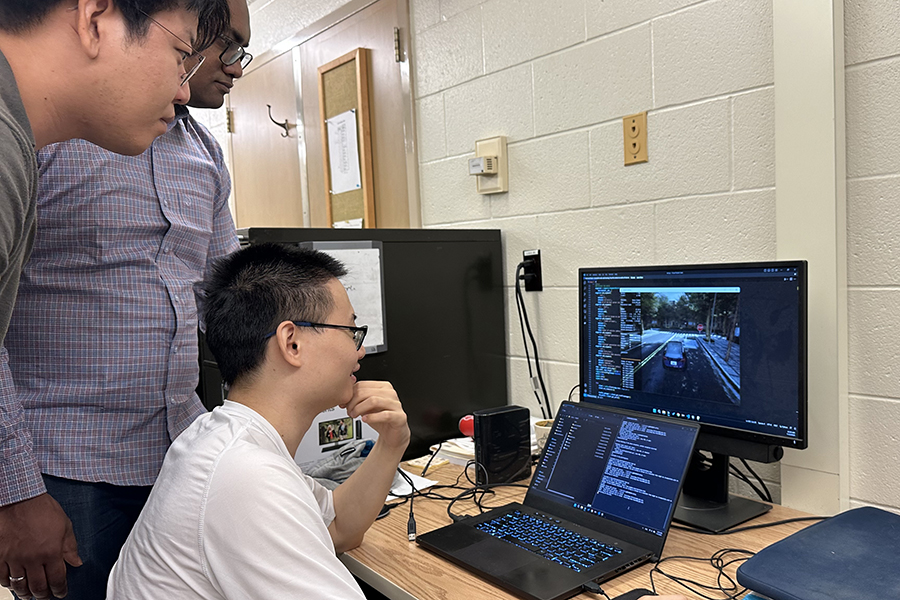Purdue part of a national research center aimed at hardening transportation systems against cyberattacks

Purdue University was selected as a major partner on a new University Transportation Center (UTC) focused on cybersecurity and funded by the U.S. Department of Transportation (DOT).
The new center for Transportation Cybersecurity and Resiliency (TraCR), led by Clemson University, is the first national security center funded by the DOT. TraCR will receive $20 million from the DOT over a five-year grant period.
UTCs will help the next generation of transportation professionals make roads, bridges, rail, shipping and airspace safer, more innovative and more efficient. The centers — 34 of which received grant awards in February up to $435 million — advance transportation expertise and technology in the varied disciplines that comprise the field of transportation through education, research and technology transfer activities, according to the DOT release.
Satish Ukkusuri, Reilly Professor of Civil Engineering, will lead Purdue’s center. Other members of the Purdue team include Dongyan Xu, Samuel D. Conte Professor of Computer Science and director of the Center for Education and Research in Information Assurance and Security (CERIAS); Berkay Celik, assistant professor of computer science; Yiheng Feng, assistant professor of civil engineering; Aniket Kate, associate professor of computer science; and Vaneet Aggarwal, professor of industrial engineering.
“With increasing connectivity, electrification and autonomy of transportation systems, the TraCR center will lead to world-changing research in transportation cybersecurity in connected and autonomous transportation systems, electric vehicles, supply chains and will develop algorithms, testing and tools that will defend the next generation transportation systems,” Ukkusuri said. “The research will develop not only mitigation methods but anticipatory techniques advancing transportation cybersecurity. The center builds on the significant strengths of the Purdue transportation research, education and workforce development over the years.”
TraCR will continuously monitor and address the vulnerabilities of cybersecurity associated with transportation cyber-physical-social systems (TCPSS). TCPSS uses computations and communication embedded in and interacting with physical processes to add new capabilities to transportation systems. Researchers will work on identifying challenges and threats across transportation modes, geographies, and applications; and pioneering advanced cybersecurity strategies and solutions for multimodal transportation.
Researchers expect to develop software and hardware that will function as the crucial backbone for preventing and mitigating potential cyberattacks on transportation systems, such as data falsification and Global Positioning System (GPS) spoofing attacks. Wirelessly connecting vehicles to each other (vehicle-to-vehicle) and to the roadway infrastructure (vehicle-to-infrastructure) holds the promise of reducing gridlock, crashes, fuel use, emissions and social inequities. However, it also introduces vulnerabilities that need to be mitigated and anticipated. With every vehicle and piece of infrastructure that connects to the internet, there is opportunity to steal data, invade privacy, demand a ransom, generate misinformation or even shut down a whole system.
One of Purdue's key contributions will be to ascertain the network-level impact of cyberattacks on connected and autonomous vehicles, electric vehicles and ride-hailing systems. The research team will develop quantum computing based algorithms to anticipate and mitigate vulnerabilities in the transportation system. Testing will take place in real-world scenarios and on simulation platforms, both of which will be designed and developed by Purdue researchers.
Additional partnering institutions are Benedict College, Florida International University, Morgan State University, South Carolina State University, the University of Alabama, the University of California, Santa Cruz and the University of Texas at Dallas.
